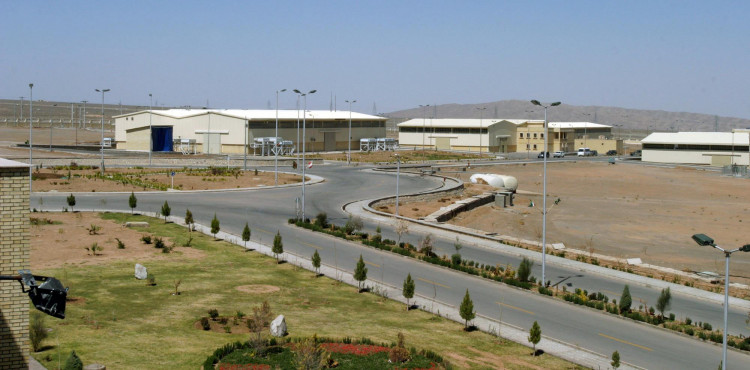After Iran recently disclosed that it had begun enriching uranium to even greater levels at a new location, a senior White House official stated on Tuesday that the U.S. was monitoring Tehran's nuclear program "with deep concern."
"We are continuing to watch, not only their nuclear progress with deep concern but also their continually improving ballistic missile capability," National Security Council spokesman John Kirby told reporters.
According to reports, Iran has begun producing uranium refined to 60% purity at its underground Fordo Fuel Enrichment Plant, which reopened in 2019 after a nuclear agreement with major powers fell through.
An atomic bomb requires 90% enriched uranium, so 60% enrichment is a substantial step toward weapons-grade enrichment.
Reiterating U.S. President Joe Biden's pledge that Iran would never be permitted to acquire nuclear weapons, Kirby stated that "all options" were being made available to the president.
"We certainly have not changed our view that we will not allow Iran to achieve a nuclear weapons capability," he said.
Iran is already enriching uranium elsewhere to up to 60% purity, which is higher than the 20% it produced prior to a 2015 agreement with major nations to curb enrichment at 3.67% but still far short of the 90% needed for material suitable for use in bombs.
Iran has told the International Atomic Energy Agency (IAEA) in writing that it has begun utilizing IR-6 advanced centrifuges at the Fordow site to enrich uranium to 60% purity, according to the semi-official ISNA news agency.
Diplomats present at the closed-door vote claimed the IAEA's 35-nation Board of Governors on Thursday adopted a resolution directing Iran to expeditiously assist the organization's inquiry into uranium traces discovered at three unregistered locations.
According to the report, Iran had already begun the process of "replacing the first-generation centrifuges (IR-1) with advanced IR-6 ones" at Fordo, a site located beneath a mountain.
Iran has consistently denied having any desire to produce an atomic bomb, claiming that its nuclear programs are solely for civilian purposes.
Iran agreed in 2015 to close the Fordo plant and limit its uranium enrichment to 3.67%, which is sufficient for most civilian uses, as part of a package of curbs on its nuclear operations aimed at preventing it from secretly producing a nuclear weapon.
In exchange, major powers agreed to ease sanctions imposed in response to Iran's nuclear program.
But in 2018, when former president Donald Trump pulled Washington out of the agreement and re-imposed crippling economic sanctions, the agreement began to fall apart.
The following year, Iran started to back out of its agreement-related obligations. It resumed Fordo and began enriching uranium at higher concentrations.






